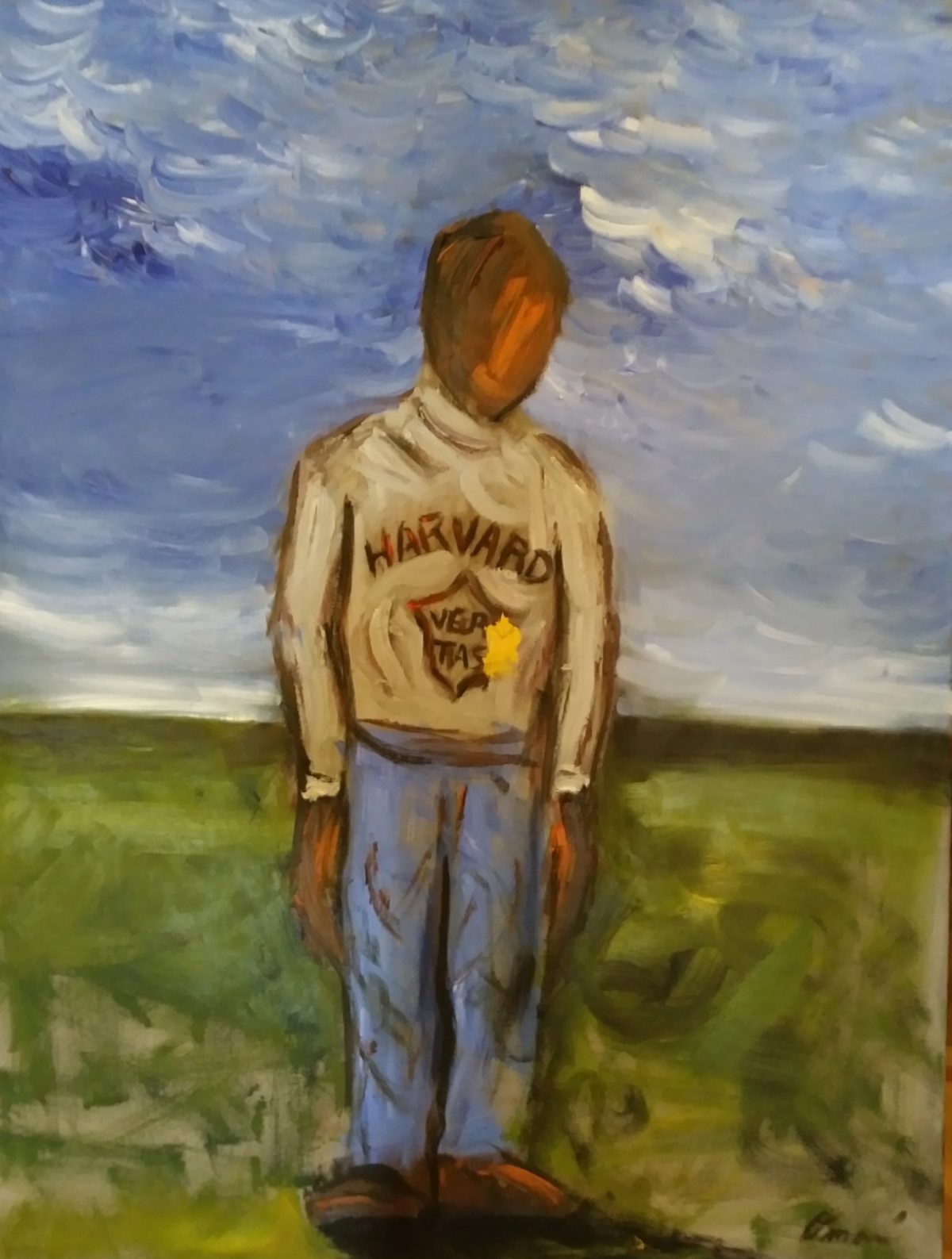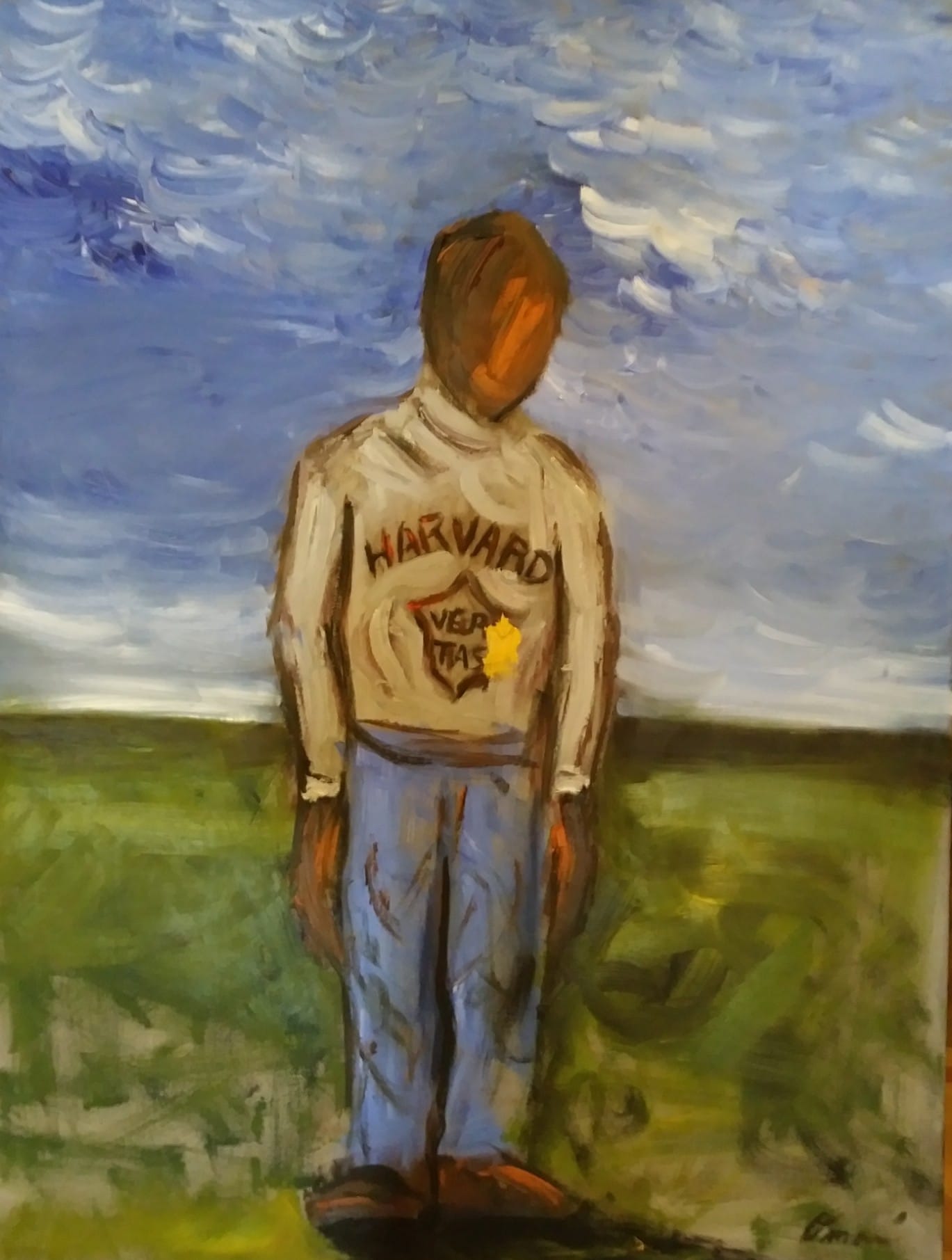
Kristin sat down with Omari Booker in his studio to learn more about Omari's life, his work, and why art is so important to him.
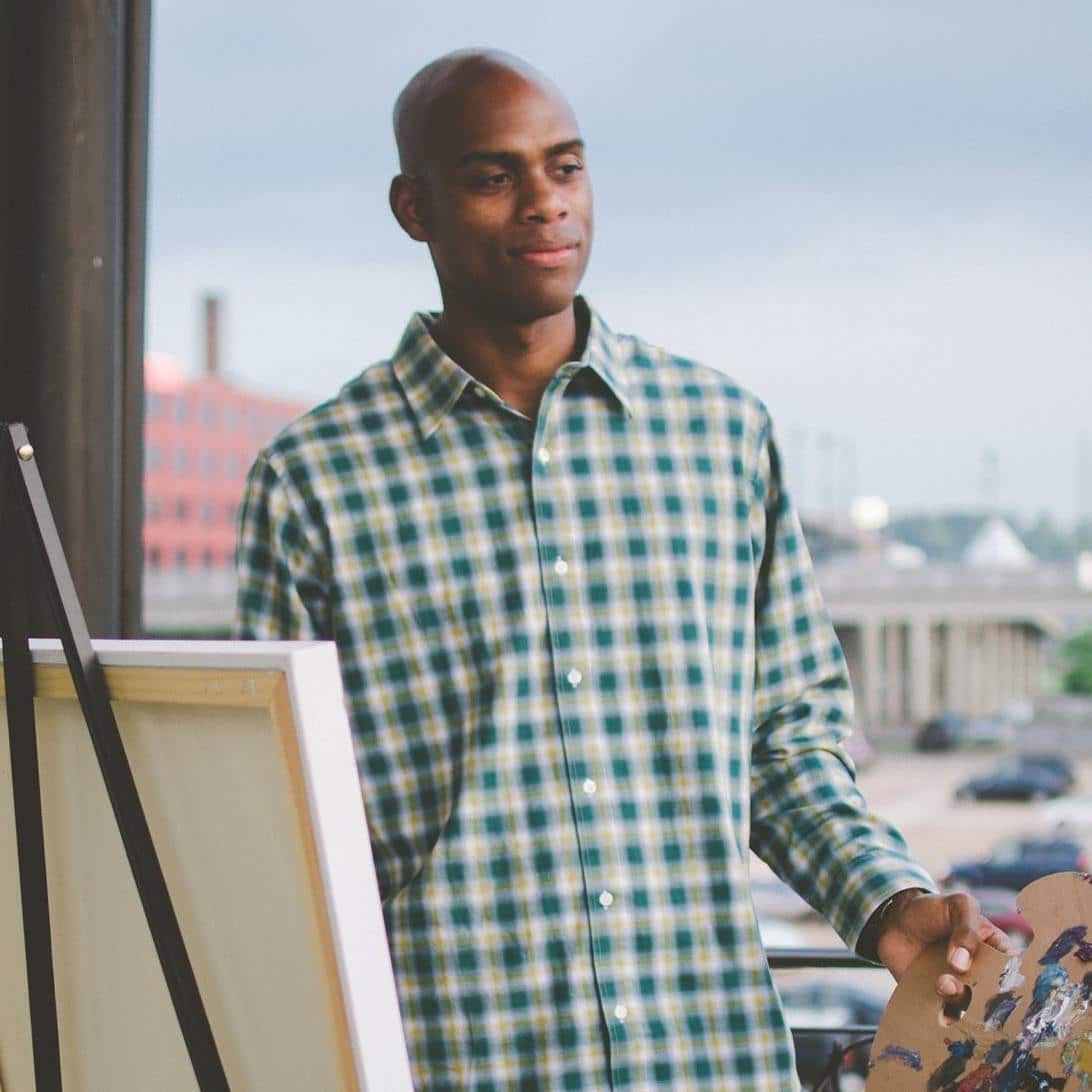
Omari Booker is a Nashville painter. His current show, "I Live Here Too" is showing at abrasiveMedia through May 16th.
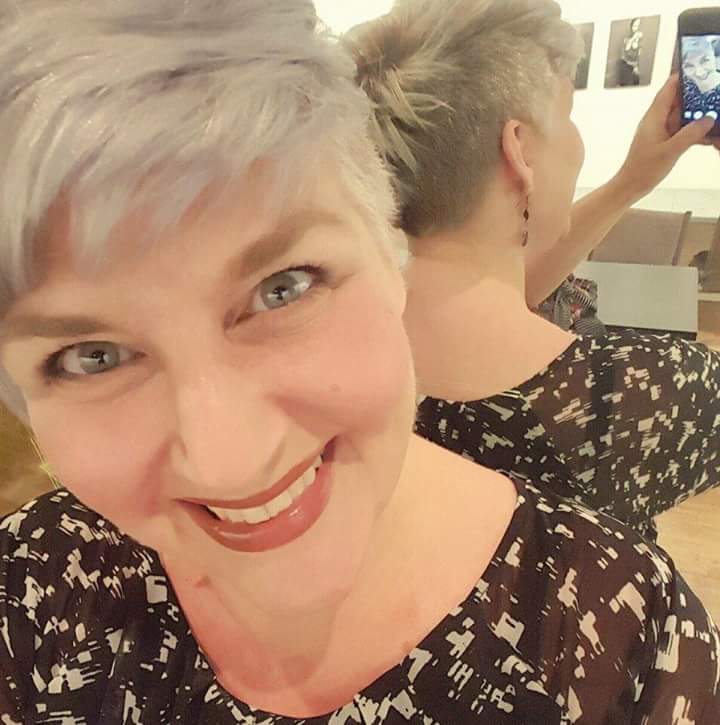
Kristin Chapman Gibbons is a Teaching Artist with abrasiveMedia. She is also the founder of True Stories Let Loose, which is producing Story Booth Nashville (Facebook link).
by Kristen Chapman Gibbons
After a tour of Omari’s studio, we settled in on the deck for a conversation about freedom and the role of an artist. “It’s our job as artists to be awake and to see. If you are going to be good, in my opinion, you have to be awake. You have to see. You can’t go back to sleep.” In encountering subjects with experiences different than his own, his compassion grew, and he was able to access a richer expression of humanity. Omari’s own history gives insight into why waking up is so critical for survival. The paintings in “I Live Here Too” are a repudiation of the blindness of bias.
"Creative expression was my way back to tenderness..."
It was also around this time that he was introduced to Viktor Frankl’s Man’s Search for Ultimate Meaning through the Higher Education Initiative. Omari credits the book with helping him create “humanizing experiences in a dehumanizing place.” He still has the copy that he was given while he was in prison. He also gives props to hip hop for helping him find his voice. Omari said that hip hop is easy to dismiss but, “it teaches you ‘The Game.’ It is truth-telling. It shows you there is a way to be yourself and be successful.” Through painting, reading, and music, Omari was searching for ways to connect to his own humanity, even as he was being denied it. He picked at the scabs of his own stories through his art, confronting his blind spots with unflinching truth and profound empathy.
Share this Post
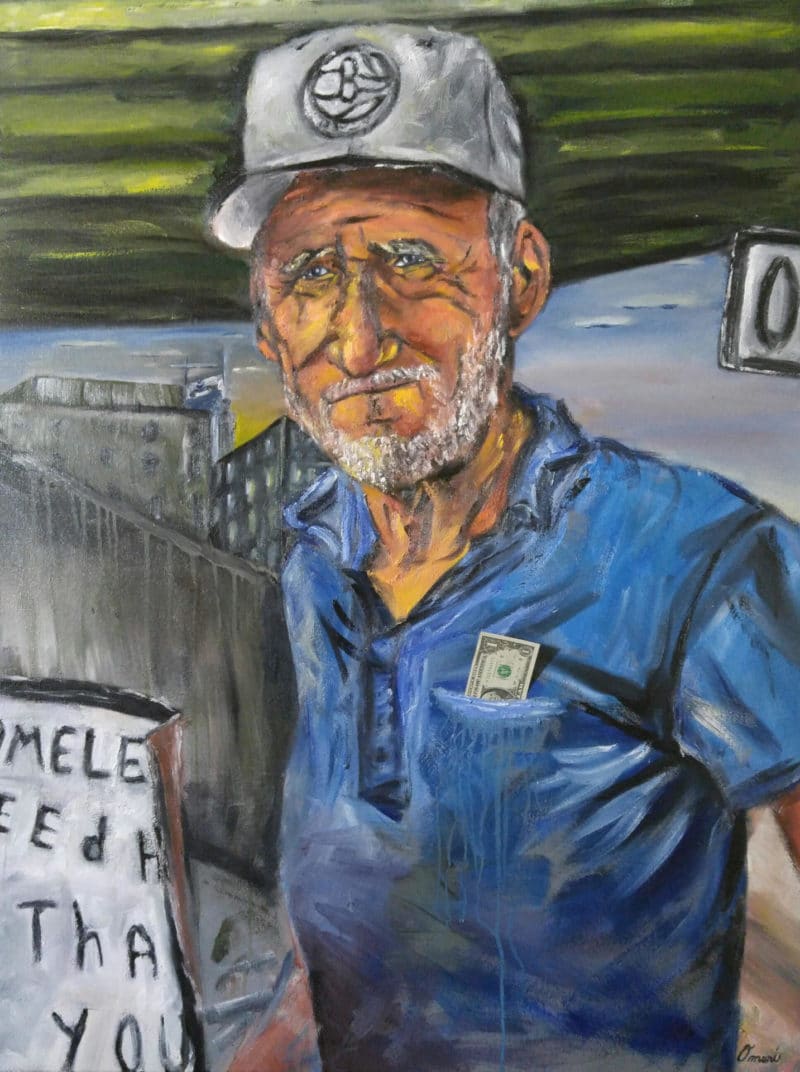
“Art is the space where I can take the mask all the way off."
Omari Booker is no longer in a dehumanizing place. Instead, he uses art to revisit painful and truthful moments in his own life, and in the lives of others. The afternoon after I left, he was preparing to paint a particularly difficult memory from when he was in the sixth grade. He recalled that he was wearing a Harvard sweatshirt. Even though his father attended the university, he felt “oddly ashamed” to wear it. Another kid in his class commented about the sweatshirt, saying “a n*gger shouldn’t wear it,” and then spat on him. “I held that image,” he said, “the stain from that spit never came out.” He knew that it would be emotionally challenging to paint but he felt he was ready. Omari completed this painting after we spoke and it is shown in the current collection.
He told me that painting gives him permission to re-engage his own experiences. “Art is the space where I can take the mask all the way off. I’ll be up there painting, with music pumping, cussing, crying, whatever—I can be the person no one sees.” This work is for himself. I asked him if he ever worried about whether the heaviness of his subject matter would negatively impact his success as an artist. He responded, “Listen, my work is not hugely marketable; it isn’t décor. I sell paintings of things nobody wants to look at.” He continued, “my job is to put it in front of people to start a conversation. There are people out there who want to have that conversation and continue it in their own space.”
I asked him if he had any advice for other artists. “Get to a point where you can accept it all, that if this is what you are called to do, do that. Don’t try to shift what you are doing just to fit a market, because then you are killing yourself. And I may have one more day to paint, so am I going to paint what means something to me or what might fill a market? I mean, you better do something for you.”
We all define success differently. Success for Omari Booker is about going deeper into his own humanity and the humanity of others. “I wouldn’t be doing what I’m doing if I was doing it for output,” he said. I asked him how he knew if he was where he wanted to be. “If you are eating every day, you’ve already won. Today is the victory. This is still unimaginable to me, an ex-offender, doing this new thing, on the backs of so many people. I think about the guys I was locked up with, and there is just an amazing amount of grace to get to do what I do.”
Amazing grace indeed.
Share this Post
You can see Omari's show "I Live Here Too" through May 18th at abrasiveMedia.

